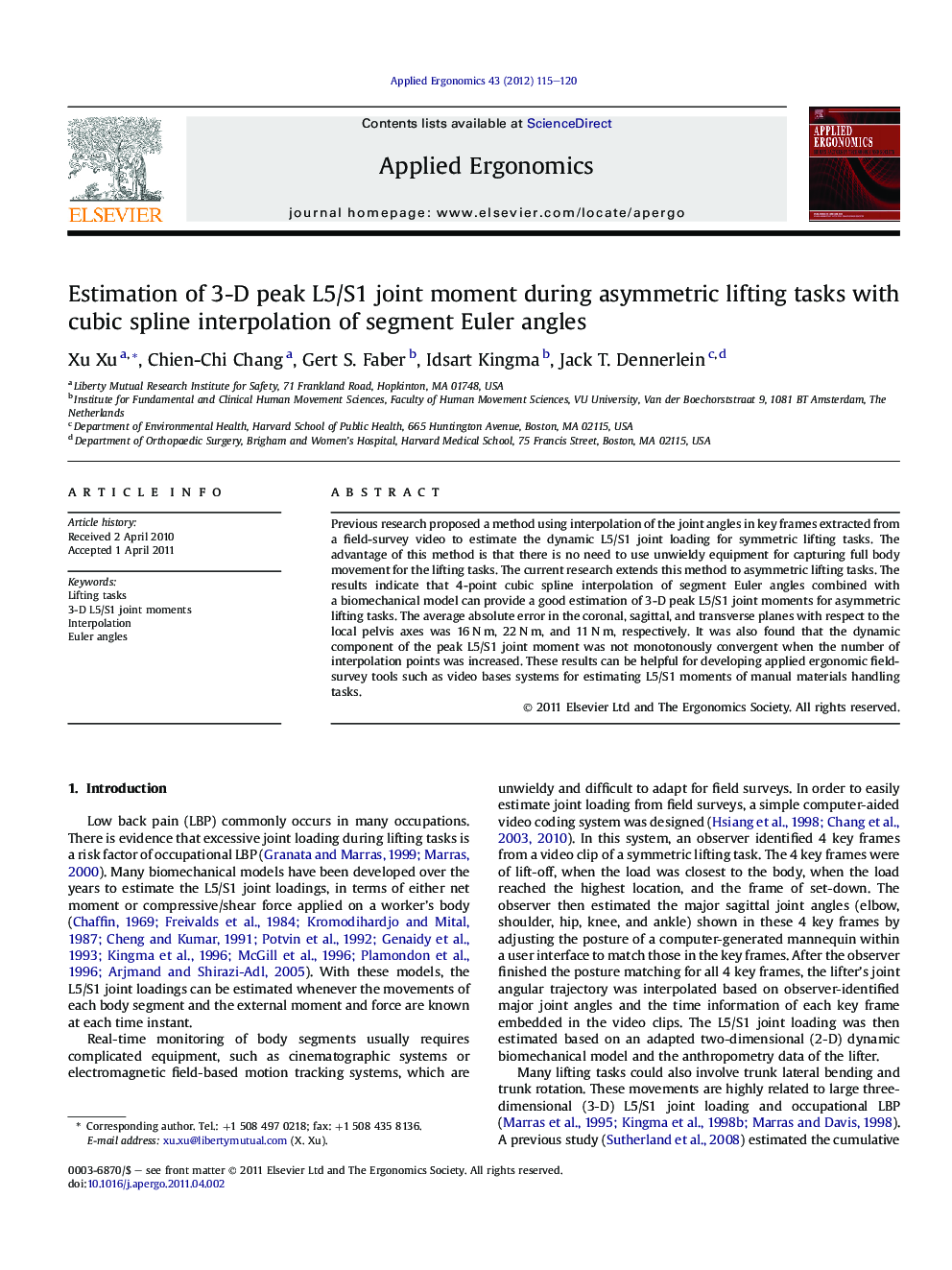| Article ID | Journal | Published Year | Pages | File Type |
|---|---|---|---|---|
| 10366015 | Applied Ergonomics | 2012 | 6 Pages |
Abstract
Previous research proposed a method using interpolation of the joint angles in key frames extracted from a field-survey video to estimate the dynamic L5/S1 joint loading for symmetric lifting tasks. The advantage of this method is that there is no need to use unwieldy equipment for capturing full body movement for the lifting tasks. The current research extends this method to asymmetric lifting tasks. The results indicate that 4-point cubic spline interpolation of segment Euler angles combined with a biomechanical model can provide a good estimation of 3-D peak L5/S1 joint moments for asymmetric lifting tasks. The average absolute error in the coronal, sagittal, and transverse planes with respect to the local pelvis axes was 16Â NÂ m, 22Â NÂ m, and 11Â NÂ m, respectively. It was also found that the dynamic component of the peak L5/S1 joint moment was not monotonously convergent when the number of interpolation points was increased. These results can be helpful for developing applied ergonomic field-survey tools such as video bases systems for estimating L5/S1 moments of manual materials handling tasks.
Keywords
Related Topics
Physical Sciences and Engineering
Computer Science
Human-Computer Interaction
Authors
Xu Xu, Chien-Chi Chang, Gert S. Faber, Idsart Kingma, Jack T. Dennerlein,
